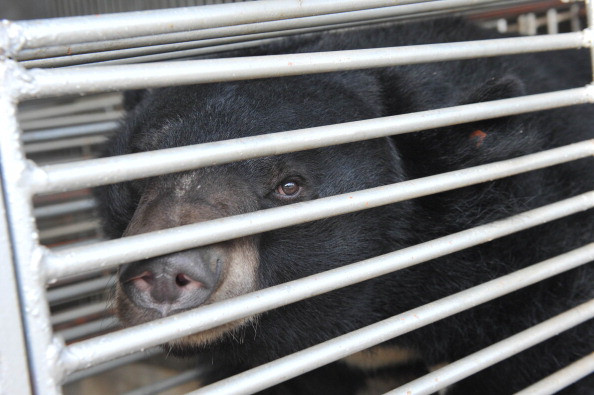Why bear bile is extracted and how Vietnam is planning to crack down on the practice
Although bile farms are outlawed in Vietnam since 1992, many farms still capture and cage the bears.

In a bid to end the bear bile trade, Vietnam has agreed to rescue more than 1,000 bears from illegal farms across the country. Although the country has outlawed bile farms since 1992, many farms continue to capture and cage bears and extract their bile using painful procedures.
Vietnam's Administration of Forestry (VNFOREST) and non-profit group Animals Asia inked an agreement on Wednesday (19 July) to rescue the bears. Both parties have committed to stop the trade and close all farms within five years, AFP reported.
"This is a truly historic day. It will lead to the definitive end to bear bile farming here in Vietnam," Jill Robinson, Animals Asia CEO said at the signing in Hanoi.
Bear bile is used in traditional Asian medicine. According to a World Animal Protection (WAP) report, more than 20,000 bears are forced to suffer in captivity for their gallbladders and bile in Vietnam, China, Laos, Korea and Myanmar.
According to Animal Asia, "bears may be kept caged for up to 30 years. Most farmed bears are starved, dehydrated and suffer from multiple diseases and malignant tumours that ultimately kill them."
The non-profit group believes it may take an estimated cost of up to $20m (£15m) to rescue and build enough sanctuaries to house the bears.
"We cannot do this by ourselves, the government needs to take responsibility for the wildlife in the country," Tuan Bendixsen, Vietnam director for Animals Asia, was quoted as saying by AFP.
Why is bear bile extracted?
According to Animals Asia, bear bile is used in traditional Asian medicine to cure flu symptoms, epilepsy and haemorrhoids. The bear's bile reportedly improves eye sight and cures liver problems caused due to high intake of alcohol.
It is said that the tradition originated in China, where the bears were hunted and killed for their bile which was only used occasionally.
The bile extraction procedures can be very painful for the bears. The animals are kept in "crush cages" where they are milked daily, sometimes twice a day.
In another procedure, the bears are kept in small cages and their bile is "free dripped" via a hole in the animal's gall bladder or a catheter. These holes are not closed and that leads to infections.
Even though many effective herbal alternatives are available, people in these Asian countries continue to use bear bile.
© Copyright IBTimes 2025. All rights reserved.



















